Can Dogs and Puppies Get Hiccups?
Dogs, much like humans, can experience hiccups. These unexpected sounds are often the result of small spasms in the diaphragm, a muscle that helps breathing. Usually, hiccups in dogs resolve quickly without any intervention.
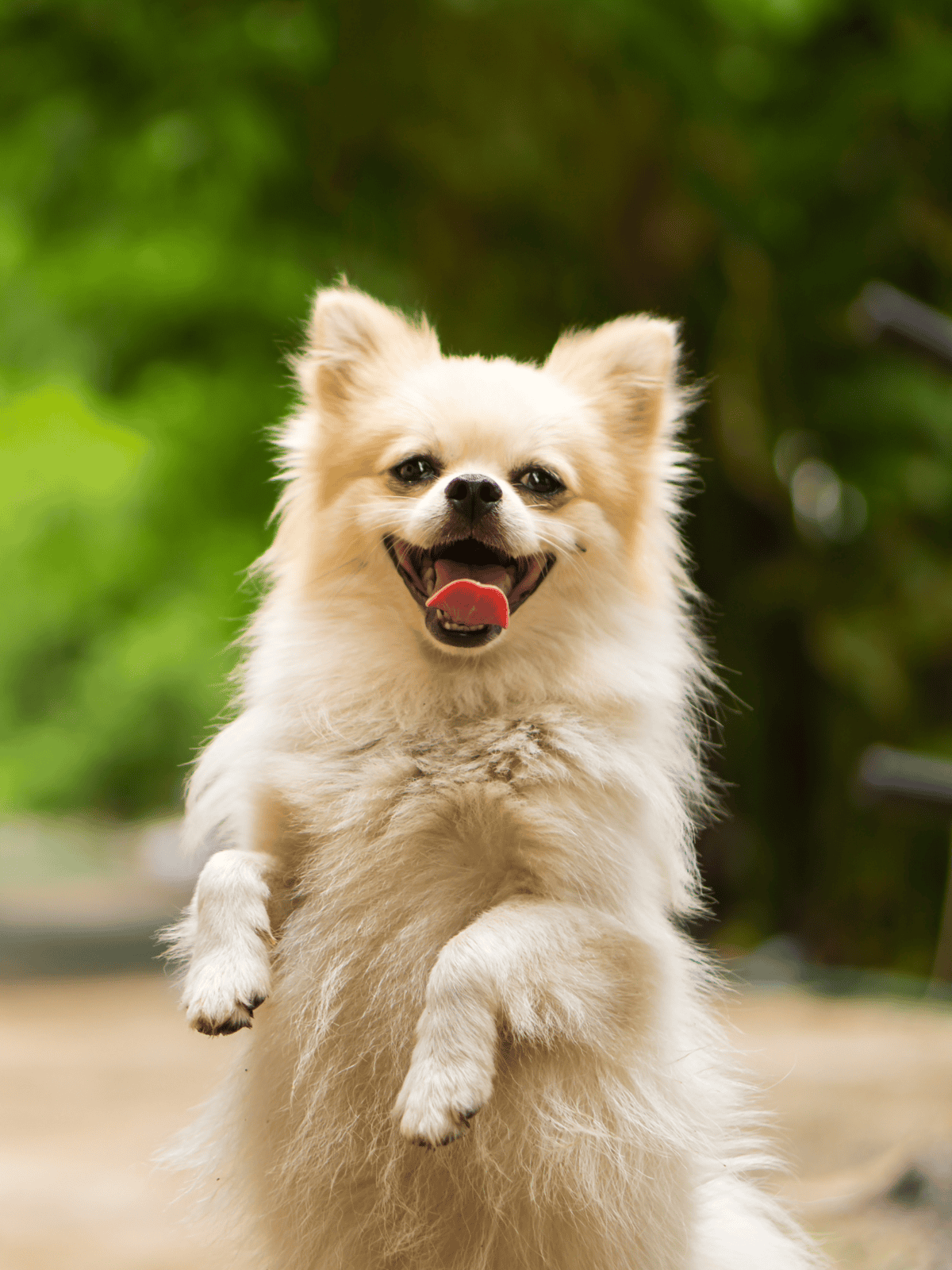
In most cases, they aren’t a cause for concern. Identifying what triggers these hiccups can help in making them stop. While it’s generally not serious, there are rare times when constant hiccups might hint at health issues.
Understanding Hiccups in Canines
Dogs can experience hiccups much like humans. These are small spasms in the diaphragm that can cause short, repetitive sounds. It’s nothing serious and often goes away quickly.
Defining Hiccups
A hiccup in dogs is a small contraction or spasm of the diaphragm. This muscle is crucial for breathing, and when it spasms, it results in a sharp, sudden intake of air.
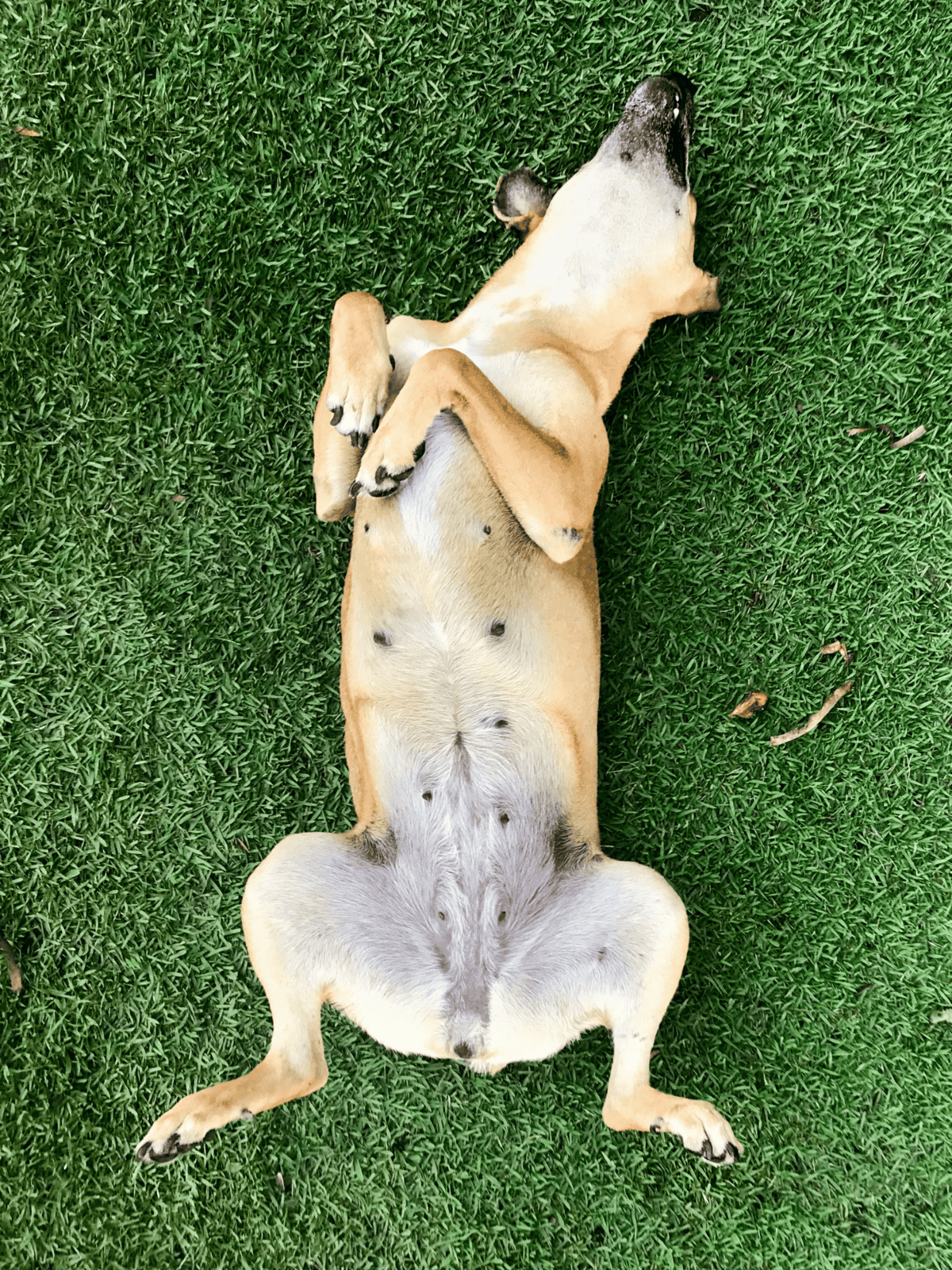
These spasms happen sporadically and can vary in frequency and intensity. Puppies often get hiccups more than adult dogs. This may be due to their energy levels and how fast they eat or drink.
Though it can seem odd, hiccups are usually harmless for dogs. They don’t cause pain or distress, and most dogs won’t even notice them. If hiccups last too long or seem extreme, consultation with a veterinarian might be necessary.
Physiological Mechanism
Hiccups in canines start in the diaphragm. This is a large muscle helping with the breathing process. During a hiccup, the diaphragm contracts suddenly, causing a quick intake of breath.
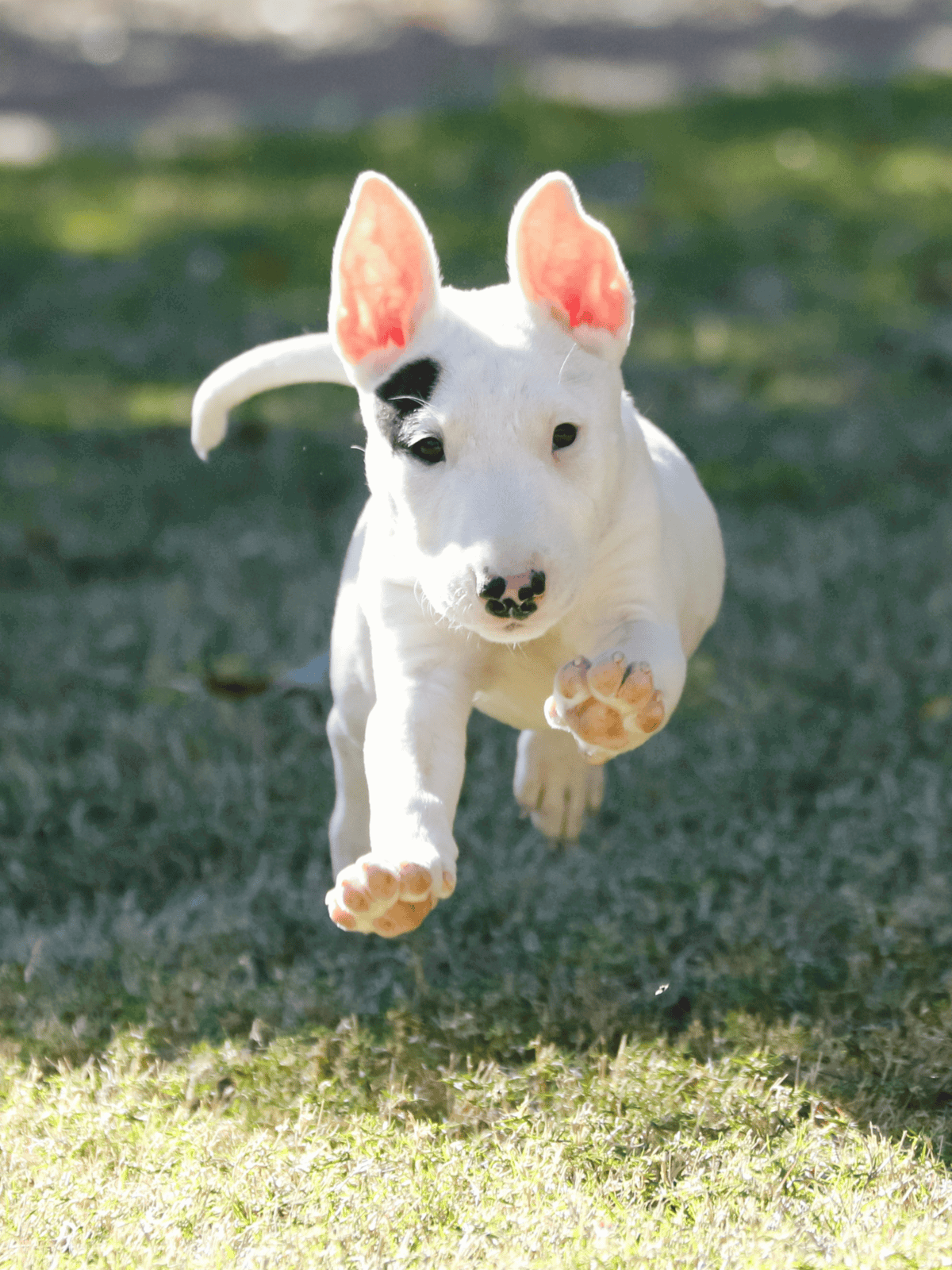
This happens when nerves between the brain and diaphragm send quick signals. Certain activities can trigger these signals, such as eating or drinking quickly, excitement, or even temperature changes.
Puppies experience this more because of their playful nature and fast-paced activities. Their small size and rapid metabolism make them prone to these harmless spasms. While unusual to witness, these short bursts of sound usually resolve themselves naturally.
Do Dogs Get Hiccups?
Dogs can experience hiccups, characterized by a distinct “hic-cup” sound when they breathe irregularly. This happens due to muscle spasms in the diaphragm. The diaphragm, located between the chest and the belly, plays a key role in helping dogs breathe by expanding and contracting normally. If the diaphragm doesn’t function properly, breathing becomes impossible for both dogs and humans.
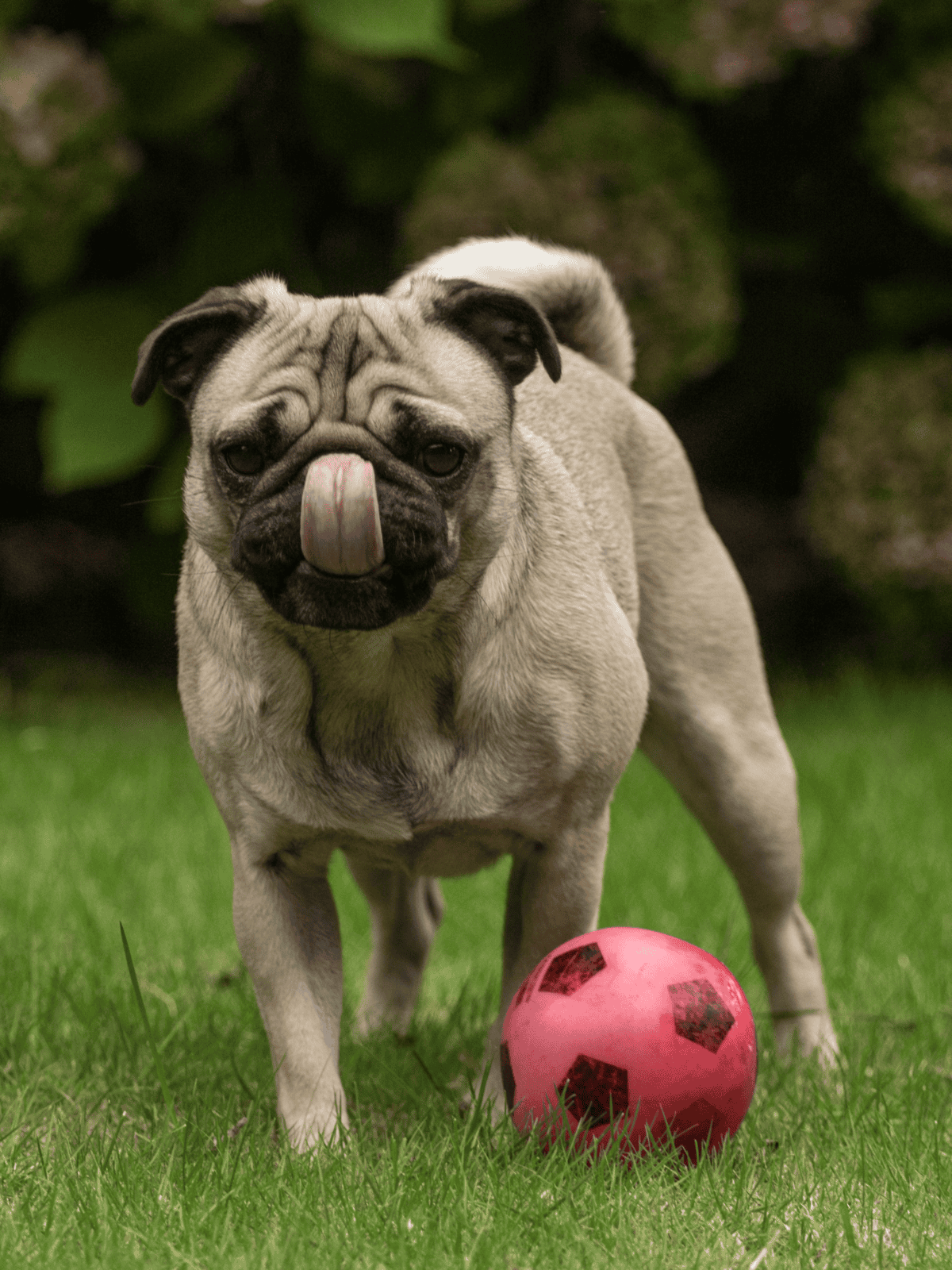
These spasms occur without the dog’s control. Hiccups are often triggered after a dog eats or drinks too fast. Typically, these hiccups won’t last long and resolve in a few minutes. Dogs of every size, age, and breed can get hiccups, but those with shorter faces, like Pugs, Bulldogs, and Boxers, might experience them more frequently. Their unique facial structure can sometimes affect their airways, making them more likely to hiccup.
Enjoying this read?
We publish this content for free to generate interest in our Premium members' area. By subscribing, you can ask the writer any questions related to pet care and this article, get access to 100+ Premium Pet Care Guides and go Ad-Free with DogFix Premium for $2.99.
Do Puppies Experience Hiccups?
Yes, puppies can indeed have hiccups. This happens more frequently in puppies than in adult dogs. Often, these hiccups show up when puppies are asleep, usually without any major cause for concern.
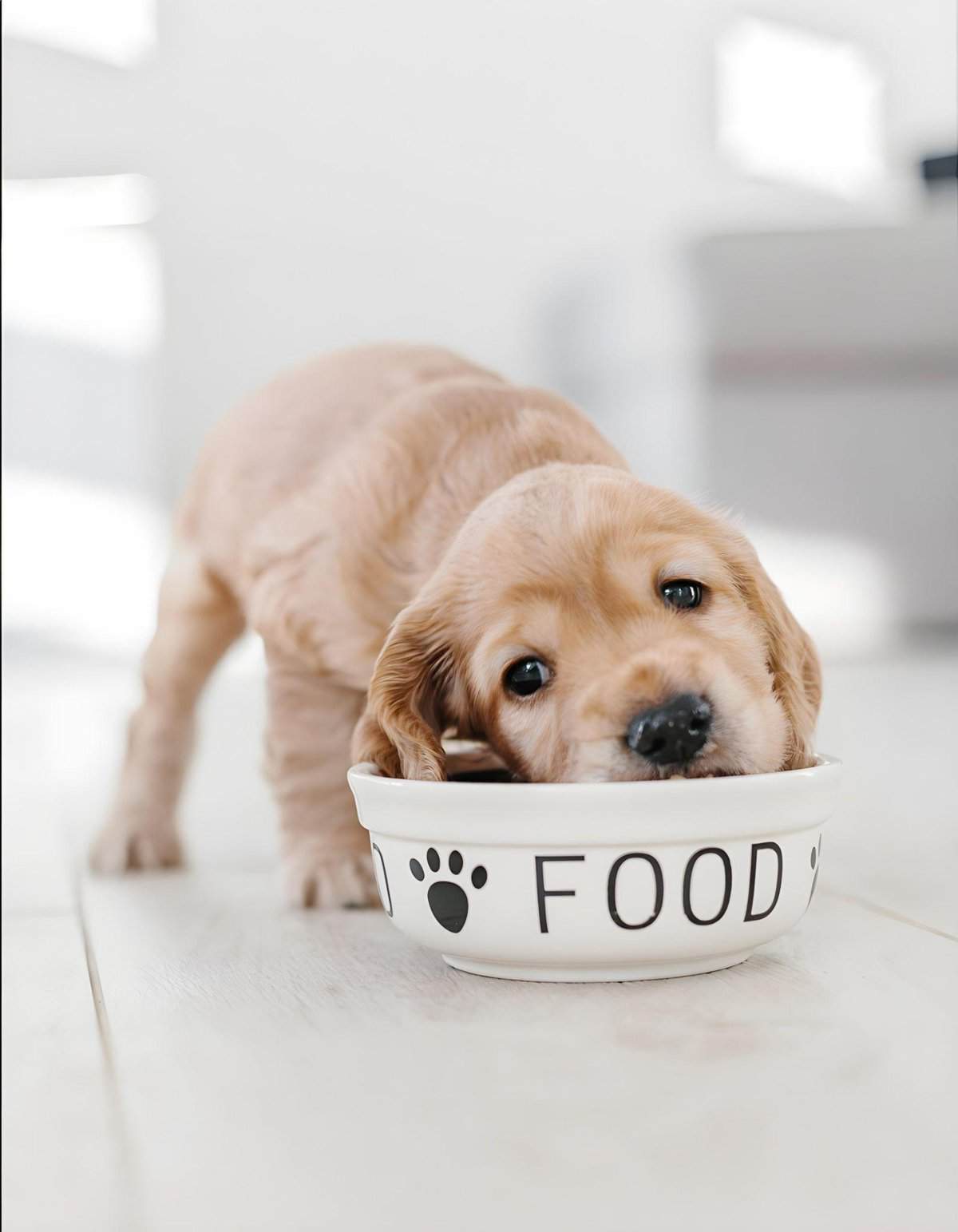
Puppies sometimes hiccup due to swallowing air during quick eating or getting too excited. Fatigue or feeling cold can also trigger hiccup episodes. Since the muscles in puppies are not as developed as in adult dogs, they tend to hiccup more often.
Helpful Tip: If a puppy has hiccups alongside signs like vomiting, diarrhea, or any change in appetite, it’s wise to visit a veterinarian. These could point to something more serious than just normal hiccups.
Reasons for Dog Hiccups
Hiccups in dogs can occur for several reasons. Swallowing air is one common cause, which often happens when dogs eat or drink too fast. This can lead to overeating, contributing further to the issue.
Puppies and dogs might experience hiccups during times of excitement or when they are playing too vigorously with their owner or another pet. Changes in temperature, such as cold weather or sudden shifts in air temperature, can also trigger hiccups.
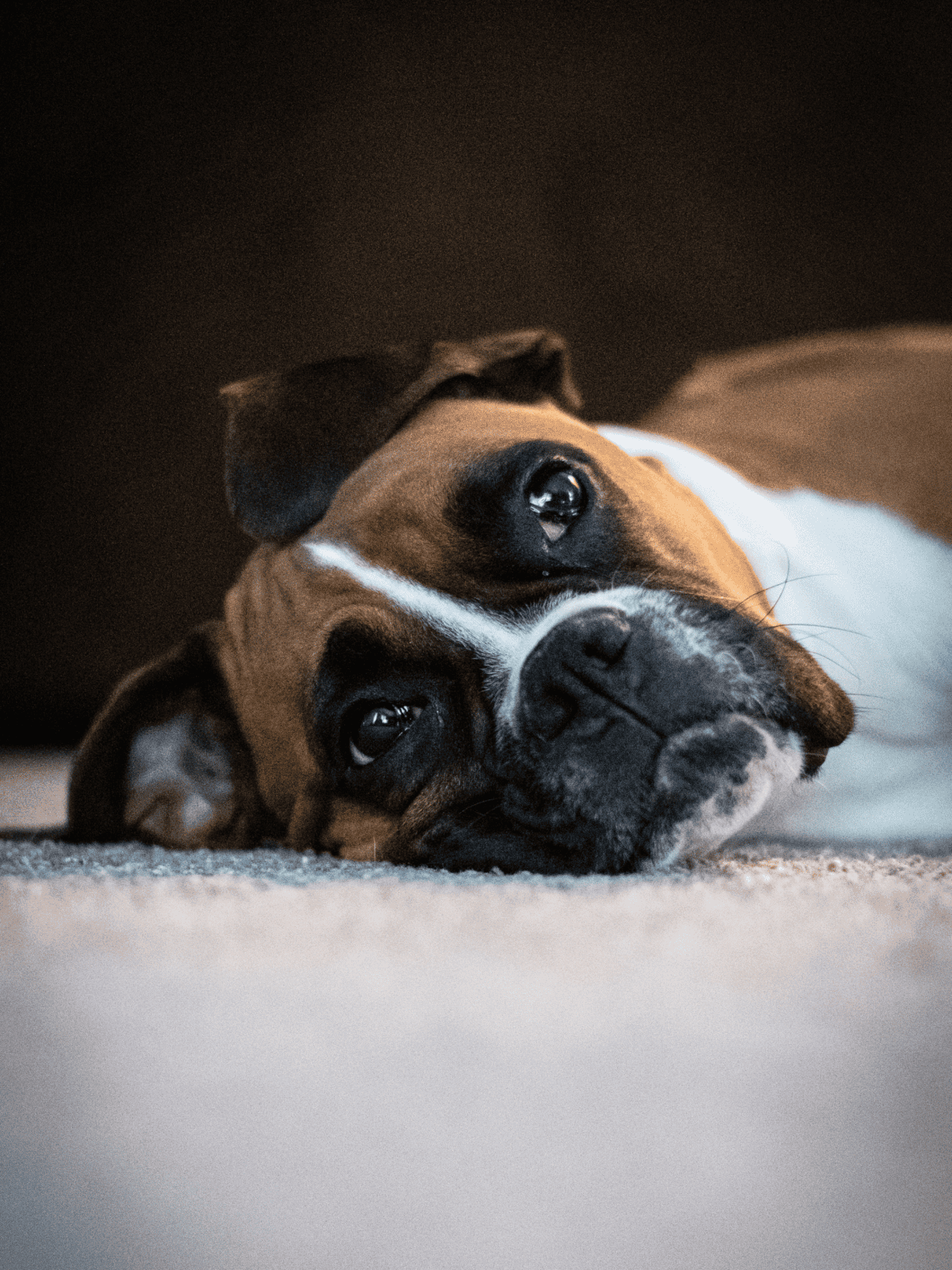
External factors include inhaling an irritant, facing stress, or dealing with severe anxiety. Hyperventilation or heavy breathing is another potential reason for dogs to experience hiccups. Additionally, certain medical conditions sometimes lead to hiccups.
Respiratory issues like asthma or kennel cough, as well as pneumonia, heart disease, and heatstroke, are known to have hiccups as a symptom due to their effects on breathing. An upset stomach located near the diaphragm may also lead to hiccups in dogs.
Identifying Hiccups in Your Pet
Dogs can get hiccups just like humans. Recognizing when your pet is having hiccups can help you ensure that nothing more serious is affecting them.
Common Signs
Hiccups in dogs and puppies are usually short, sudden, and rhythmic sounds. They might happen frequently for a few minutes. During this time, you may see their abdomen moving slightly with each hiccup. These movements are a result of the diaphragm contracting.
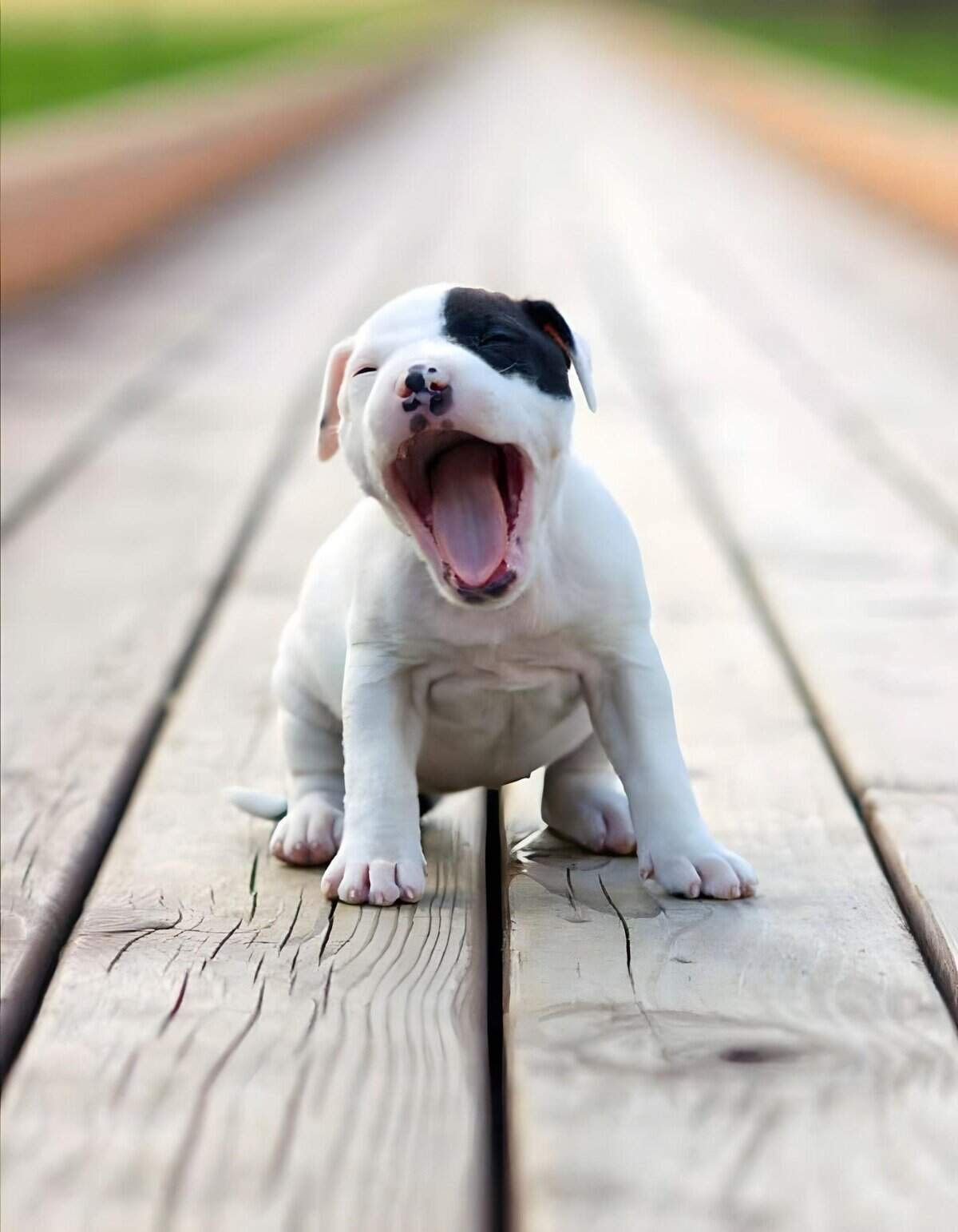
Hiccups can occur more often after your pet eats or drinks quickly. Puppies are especially prone to get them due to their excitement during meals. While they may seem alarming, hiccups are typically harmless and pass on their own. Recognizing these signs can keep pet owners from being unnecessarily worried.
Differentiating from Coughing
Coughing is different from hiccups and usually sounds harsher. A cough might result from something stuck in your dog’s throat, an infection, or allergies. It doesn’t have the same consistent rhythm as hiccups and is often more forceful.
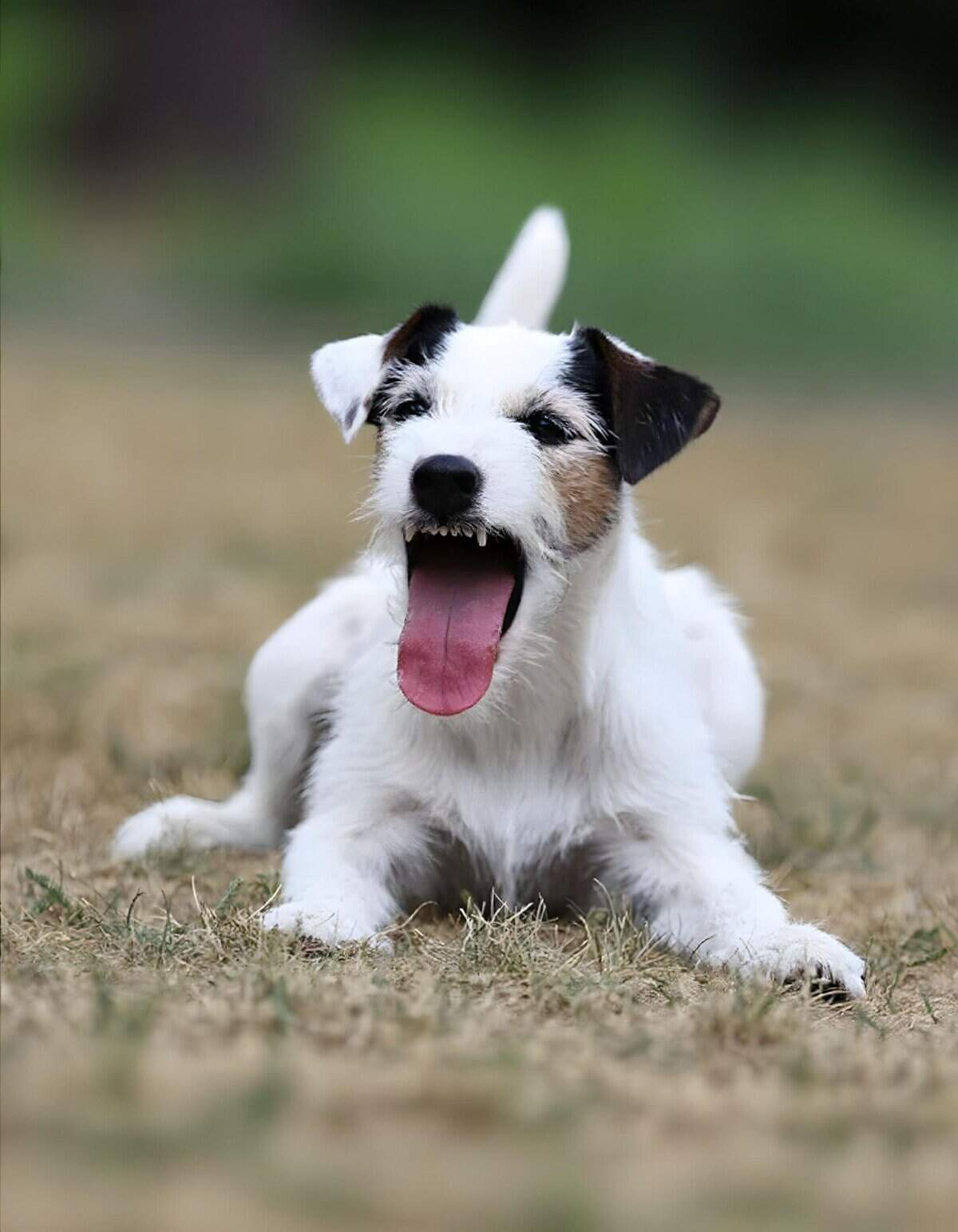
In addition to sound, watch for other symptoms like nasal discharge or wheezing, which would suggest coughing rather than hiccups. If your dog seems distressed or if the episodes last a long time, it might be best to consult a veterinarian to ensure their health is not at risk.
Potential Health Implications
Dogs and puppies sometimes get hiccups just like people. While hiccups are usually harmless, they can occasionally signal a health issue.
When to Worry
Hiccups in dogs and puppies are typically not serious. They often occur after eating quickly or due to excitement. Persistent hiccups lasting more than a day could be a sign of a medical problem. If a dog also shows symptoms like vomiting or coughing, it may need veterinary attention.
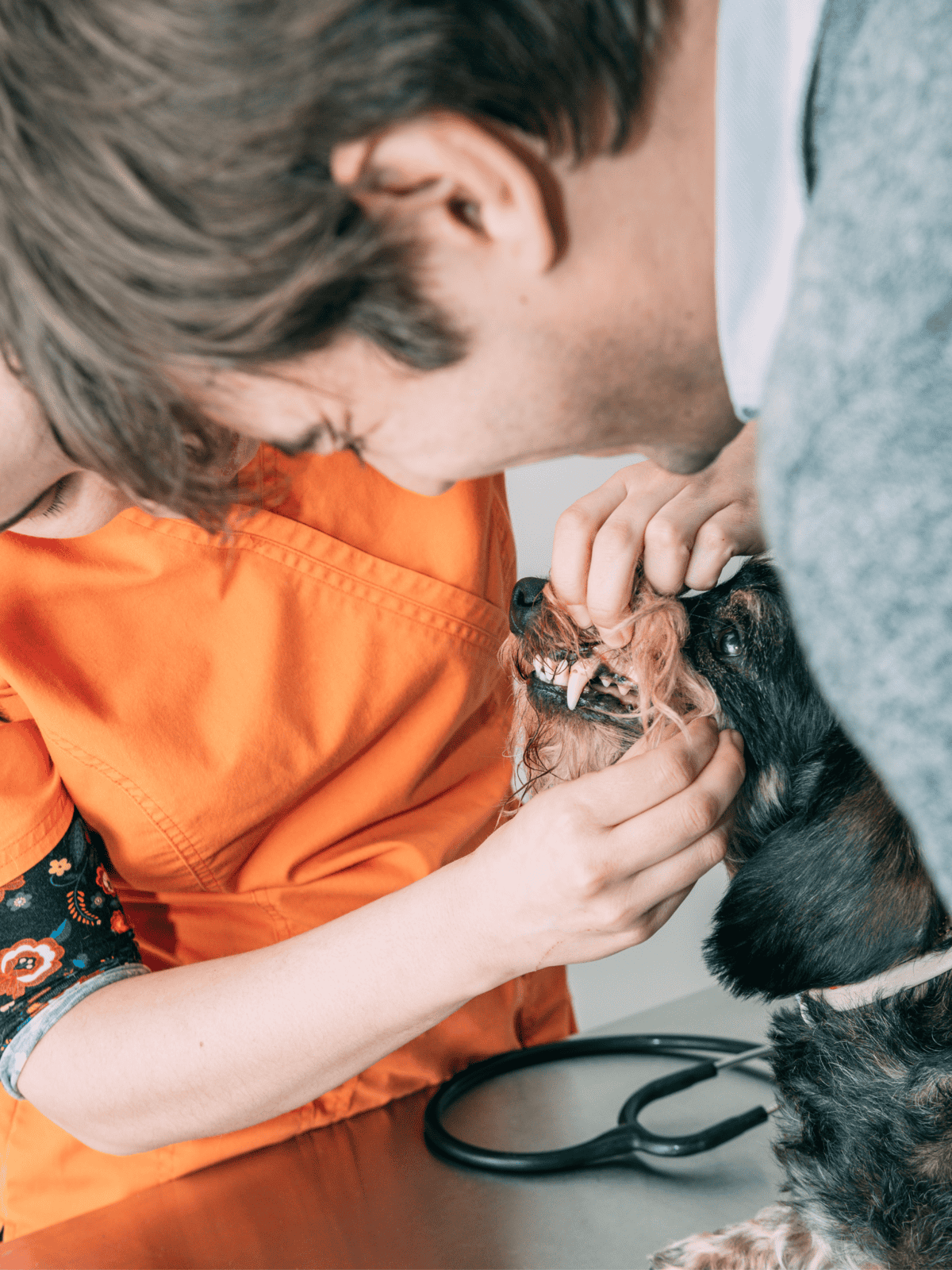
Owners should pay attention to frequency. Frequent or very loud hiccups might be linked to respiratory issues. It’s best to observe the dog’s overall health and behavior. If there are other unusual symptoms, consulting a vet is important for peace of mind and the pet’s welfare.
Long-Term Effects
Hiccups in dogs rarely cause long-term harm. Most of the time, they pass without concern. It’s essential for owners to monitor their pets, though. Chronic hiccups could point to underlying health issues such as gastrointestinal problems.
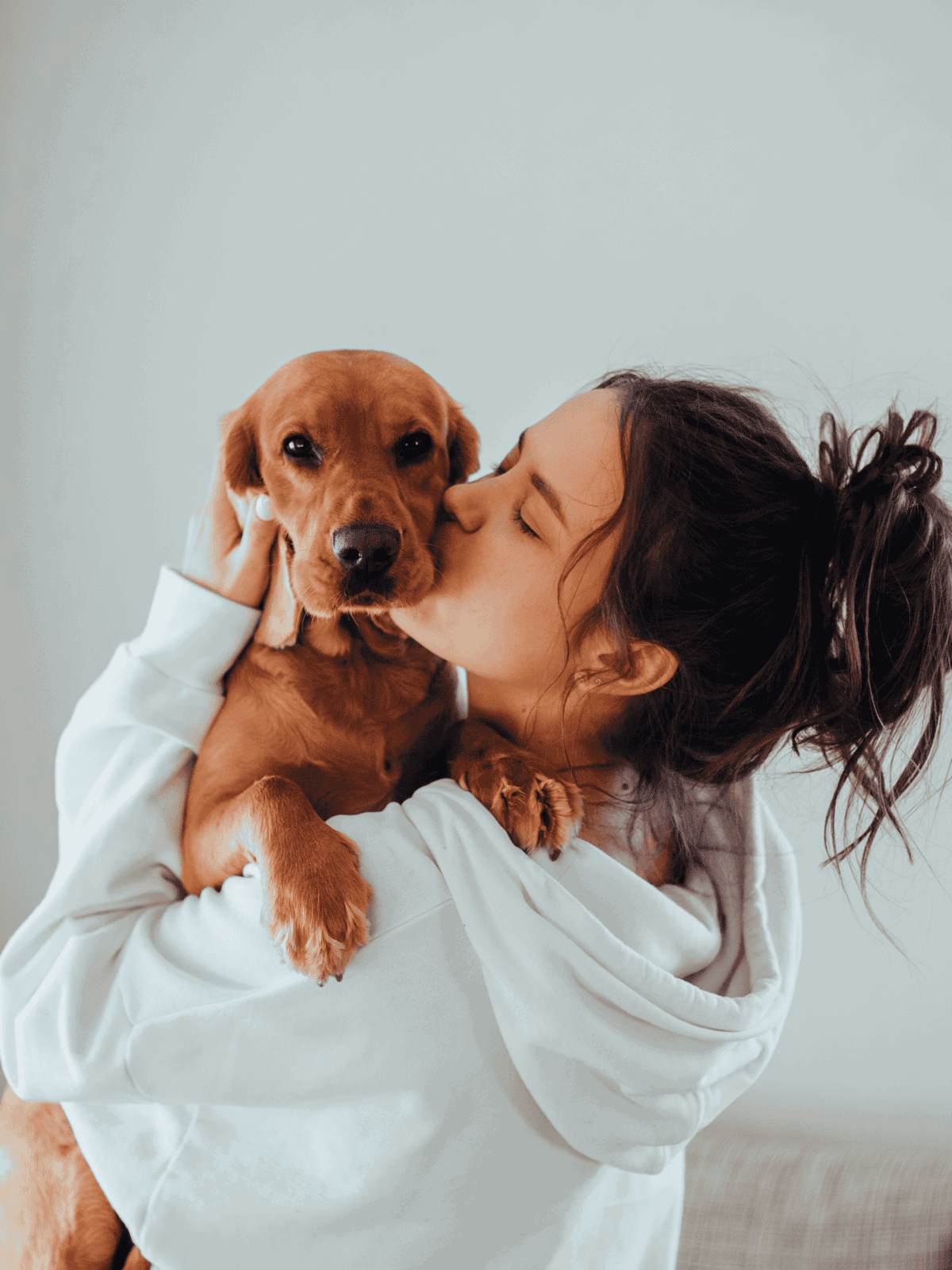
In rare cases, conditions affecting the nervous or respiratory systems might lead to frequent hiccups. Continuous observation helps identify changes in the dog’s health. If hiccups persist and seem unusual, a vet should evaluate the dog to rule out possible health conditions that may require treatment. Overall, most hiccups are harmless, but staying attentive is key.
Dealing with Hiccups
Dogs and puppies can have hiccups. To help a dog or puppy with them, there are some home remedies and tips to prevent them in the future.
Home Remedies
There are several ways to help calm hiccups in dogs and puppies. Changing the dog’s position can sometimes stop the hiccups. Encourage the dog to stand or sit if they are lying down. Offering water might also help. Give the dog small sips to drink.
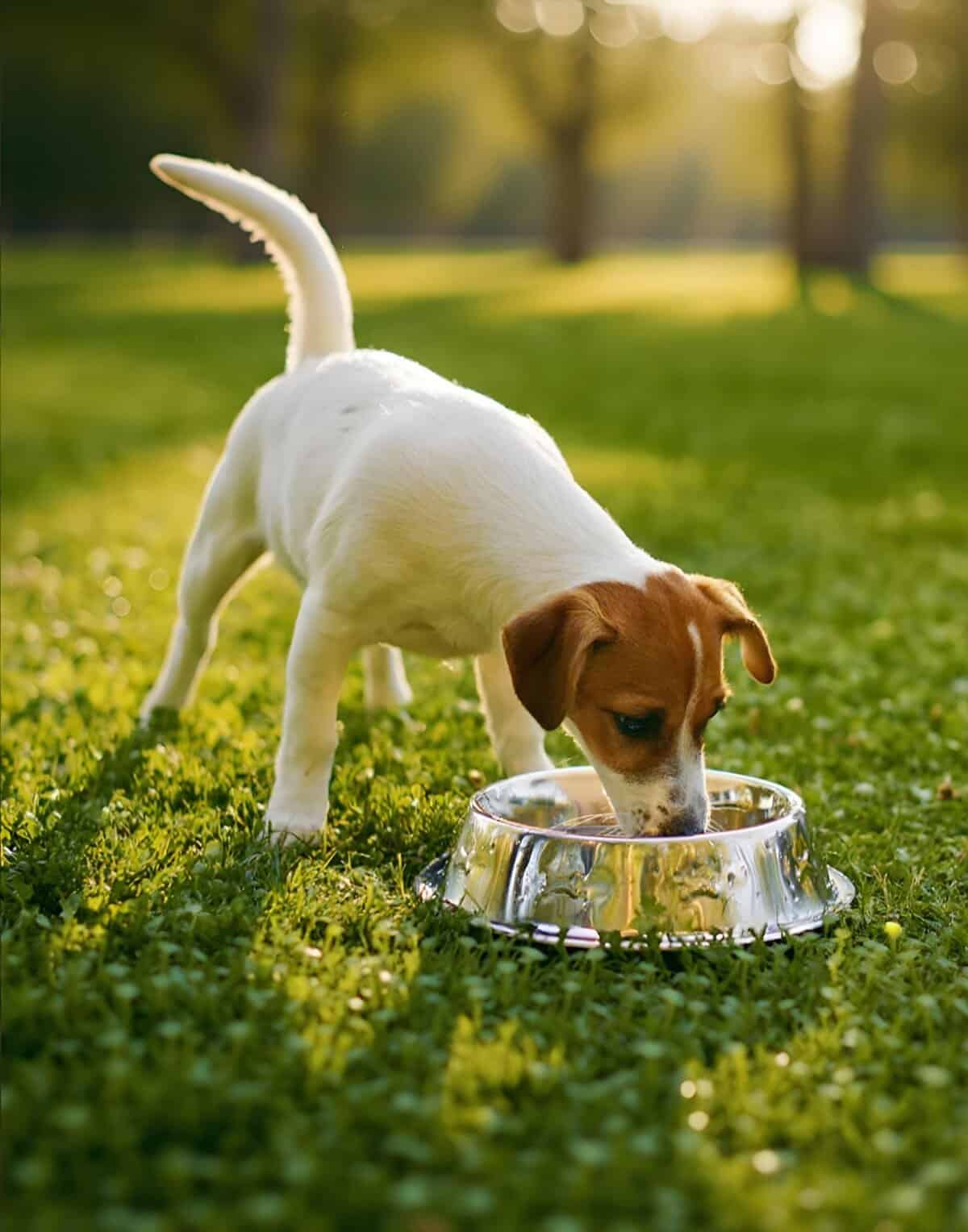
Gentle belly rubs can soothe their muscles. This may ease the hiccups. Try to keep the dog relaxed and calm. Hiccups can sometimes go away on their own with relaxation.
Avoid giving the dog any foods that cause hiccups often. Be patient if none of the remedies work immediately. In most cases, hiccups are harmless and pass quickly.
Preventative Measures
Feeding smaller meals can help prevent hiccups in dogs. Eating too fast often causes hiccups. Keep meals to a reasonable size to avoid fast eating. Using a slow feeder bowl can help.
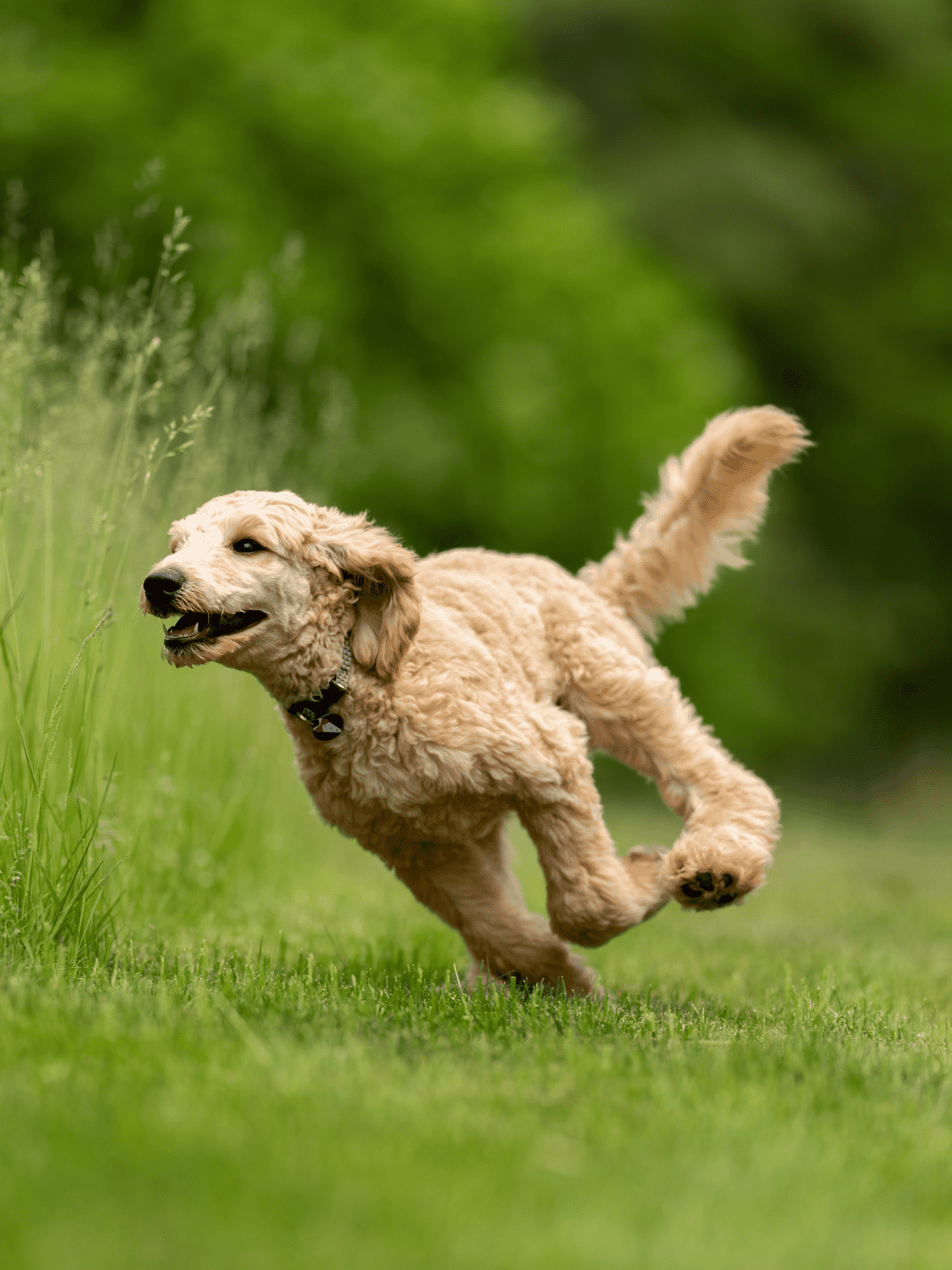
Regular exercise is good for their breathing and muscle control. Keeping a routine can make a difference. Monitoring their food and water intake is also key.
Remember not to give dogs things that might upset their digestion. Maintaining a peaceful environment during meal times can be beneficial as well. If hiccups occur often, consider consulting with a vet.
Medical Interventions
Dogs and puppies might sometimes get hiccups. While usually harmless, it’s important to know when to seek medical help and what treatments might be available.
When to Consult a Veterinarian
If a dog or puppy experiences hiccups frequently or for a long period, it might be time to visit a veterinarian. Hiccups that last more than a few hours, occur daily, or are accompanied by symptoms like coughing, difficulty breathing, or appetite loss could be signs of an underlying condition.
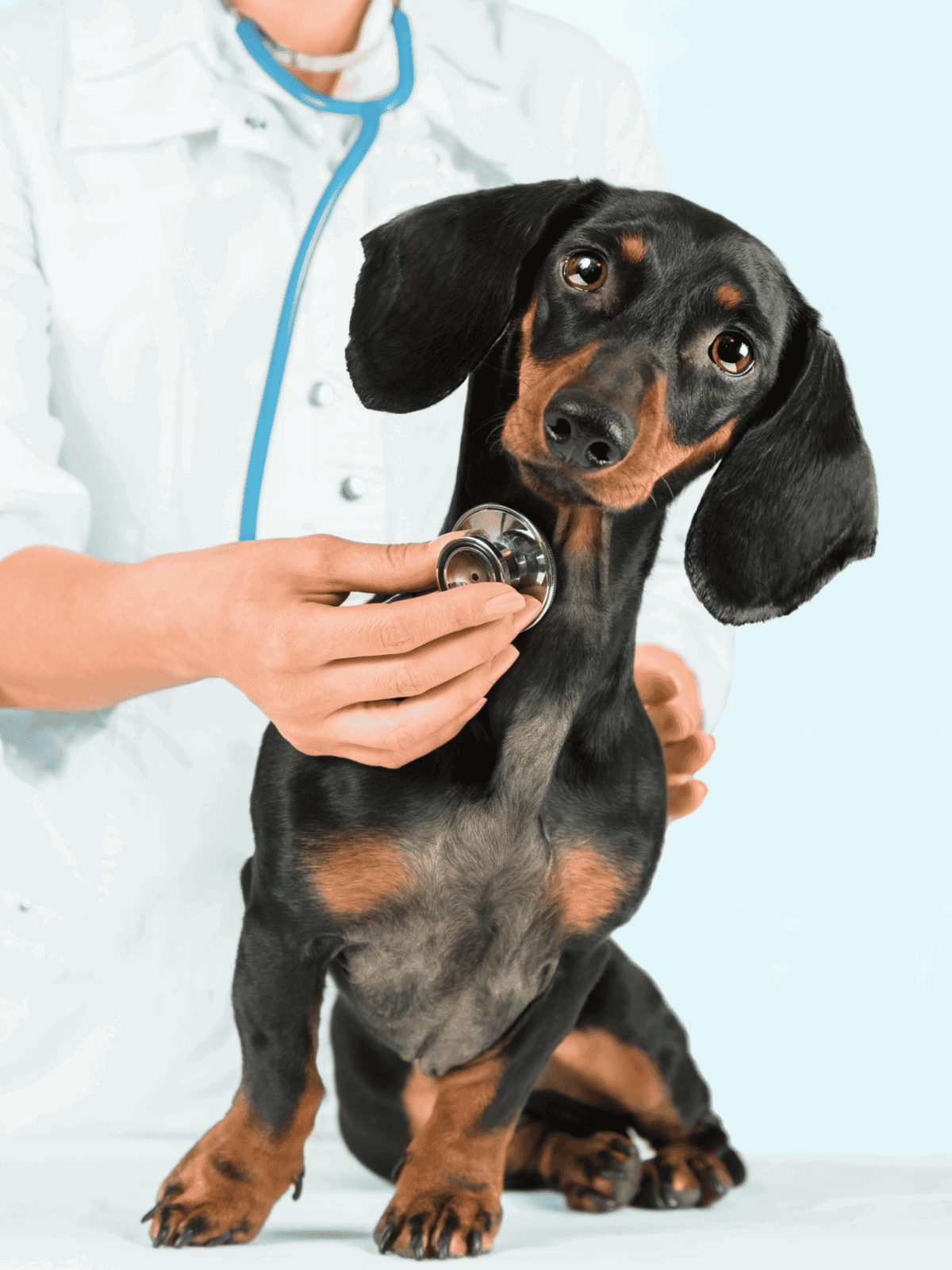
Observers should also watch for changes in behavior, energy levels, or any discomfort. Early consultation might help identify issues such as respiratory infections or gastrointestinal problems, ensuring timely treatment.
Possible Treatments
Veterinarians might suggest various treatments based on the cause of hiccups. For example, dietary changes could help if hiccups are due to eating habits. Dogs might be encouraged to eat slowly or switch to a different type of food.
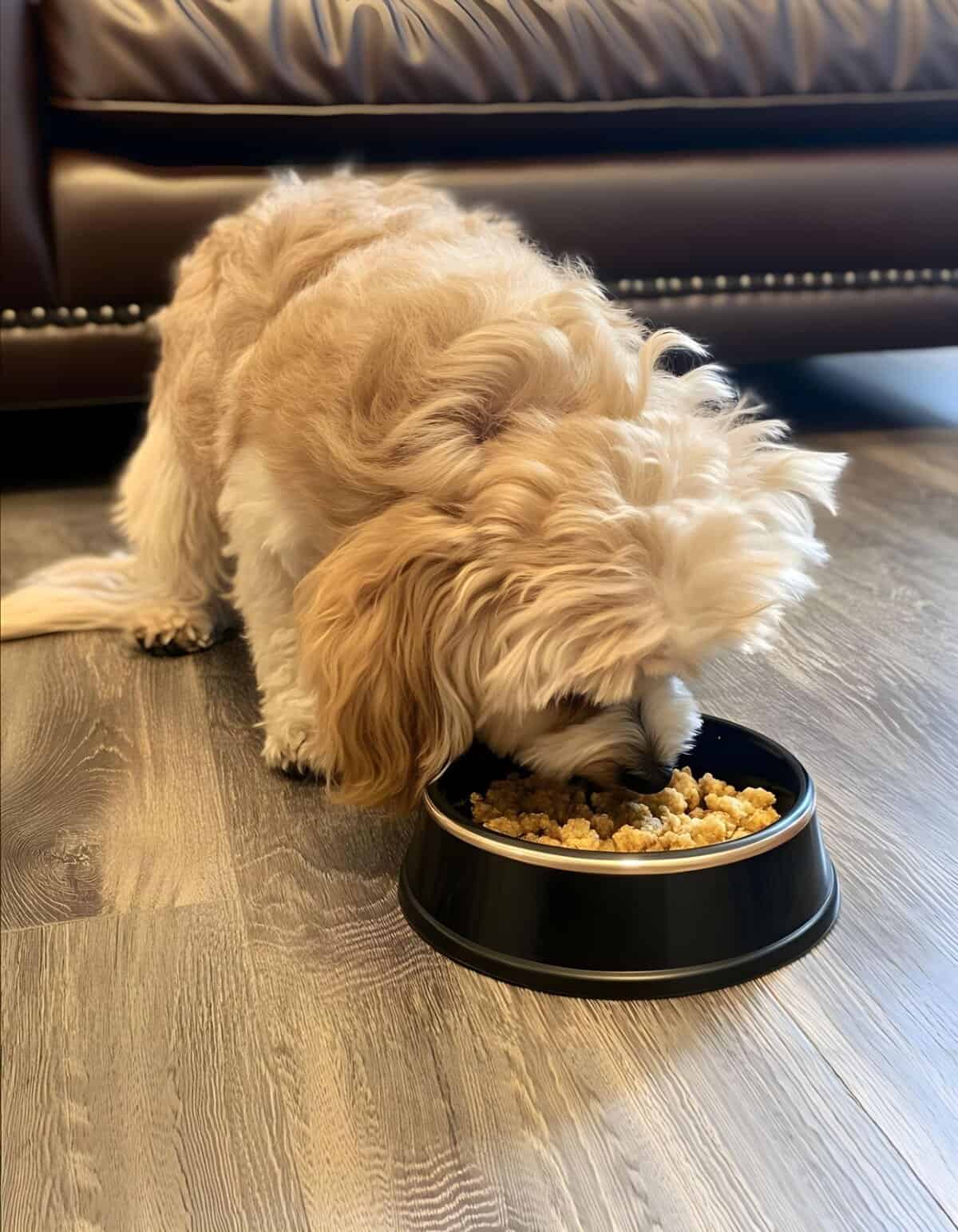
Hydration is important, as well. Ensuring a dog drinks enough water can sometimes reduce hiccups. In cases where an underlying illness is identified, medication may be prescribed to address the root cause. It’s crucial to follow the vet’s guidance closely when administering any treatment to ensure the pet’s well-being.
Preventing Dog Hiccups
Preventing hiccups in dogs can be accomplished with a few simple strategies. Eating and drinking habits are crucial. Dogs that eat or drink too quickly can benefit from using tools like slow-down bowls, puzzle feeders, or snuffle mats. Offering smaller meals several times a day can also help them pace their eating.
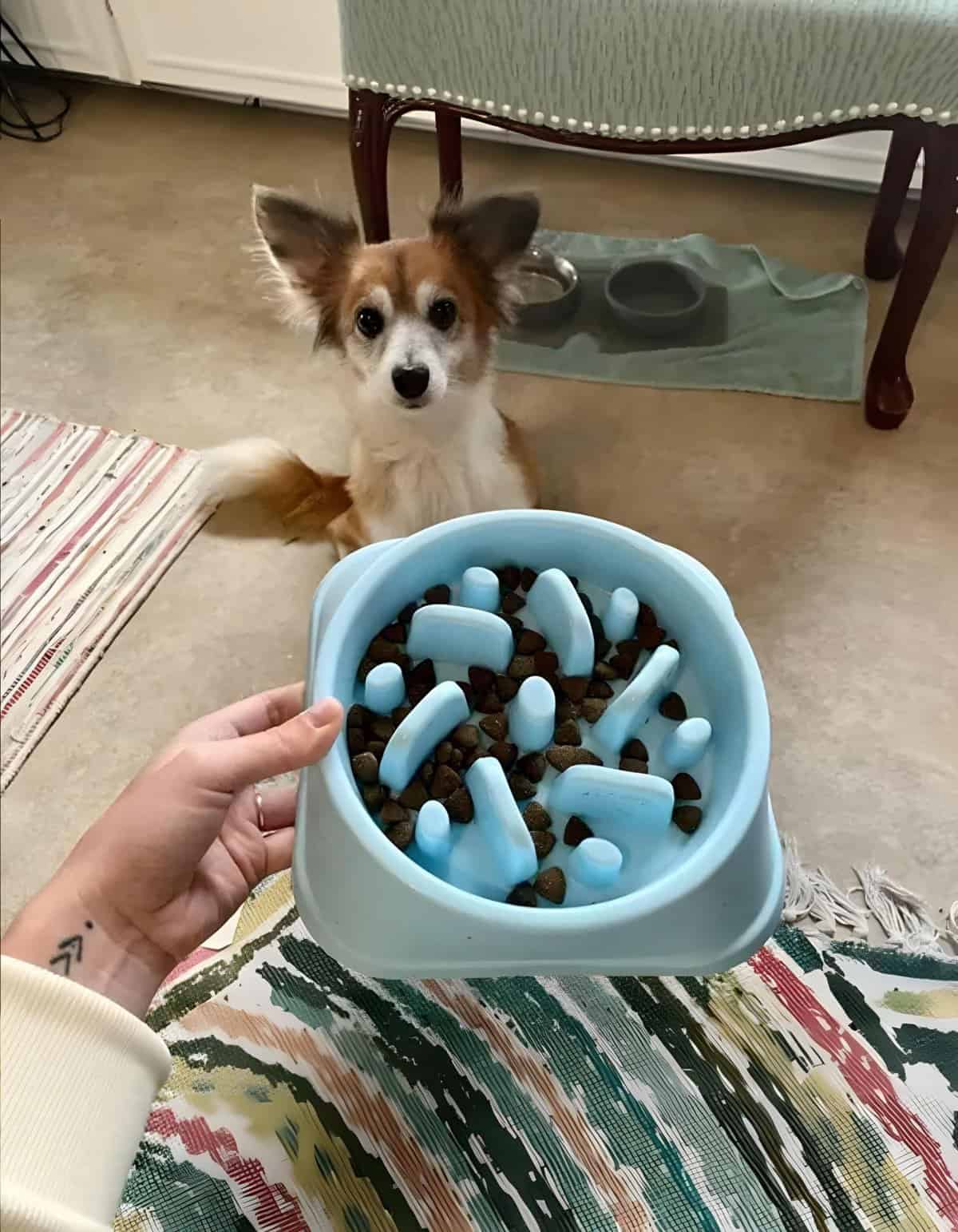
Environmental factors matter, too. Keeping excitement levels low during meals can prevent hiccups, particularly in puppies. Sudden changes to their diet or being exposed to extreme temperature fluctuations should be avoided, as these can trigger hiccups in dogs. These adjustments can lead to a calmer and more pleasant eating experience for pets.
Diet and Nutrition
Dogs and puppies need balanced nutrition to maintain their health. Understanding food types and feeding schedules, as well as considering supplements and vitamins, is important for their development.
Food Types and Feeding Schedules
The diet for dogs and puppies should include quality protein sources, such as chicken or fish. Choosing the right dog food means reading labels to check for whole ingredients. Puppies need more frequent meals, generally three to four times a day, while adults can usually have two meals daily.

Feeding schedules are crucial for digestion. Consistent mealtimes help regulate their energy levels. Avoid feeding them human snacks that can upset their digestion or lead to weight gain. Always provide fresh water alongside their meals.
Supplements and Vitamins
Supplements can support your dog’s health needs. Common supplements include fatty acids for a shiny coat and joint health, along with probiotics for digestive care. Puppies may benefit from DHA for brain development.
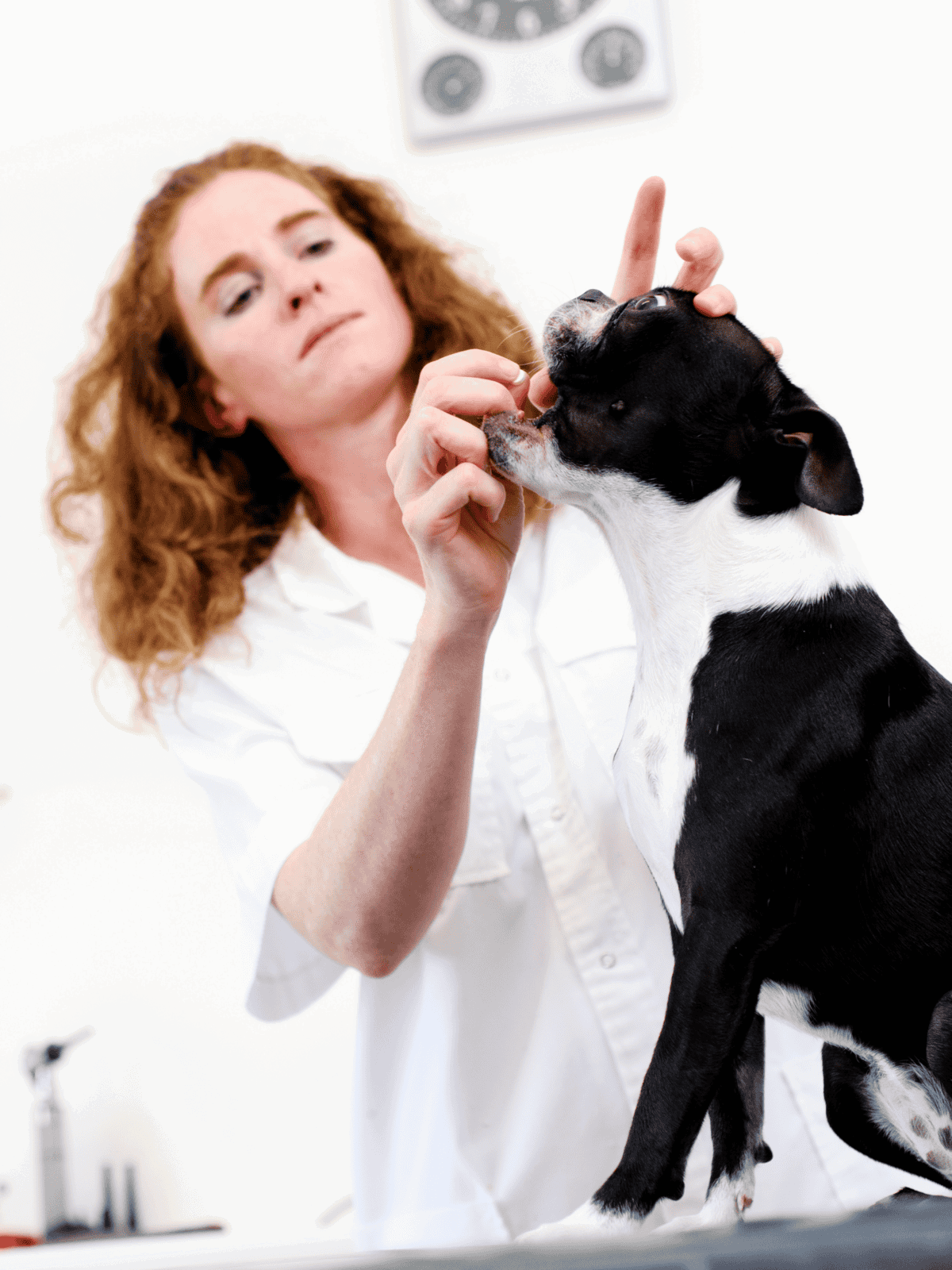
Vitamins should be chosen based on your dog’s specific needs and lifestyle. It’s best to consult with a veterinarian before adding any supplements. Over-supplementation can be harmful, so ensure doses match the dog’s weight and health. Always prioritize natural vitamins found in quality dog food.
Frequently Asked Questions About Dog Hiccups
Is It a Problem if My Dog Has Hiccups?
Hiccups in dogs are often quite normal. If they continue for over an hour or cause your dog to show signs of distress or discomfort, it might be worth being concerned.
How Can You Help a Dog Stop Hiccupping?
Dogs often stop hiccupping on their own. Small actions like giving a sip of water, a gentle belly rub, or some cuddle time can assist in easing the hiccups.
What Are Dog Hiccups Like?
Dog hiccups consist of sudden, jerky body movements and produce a sound much like human hiccups. This occurs when the diaphragm contracts, causing the vocal cords to shut, producing a “hic” noise.
